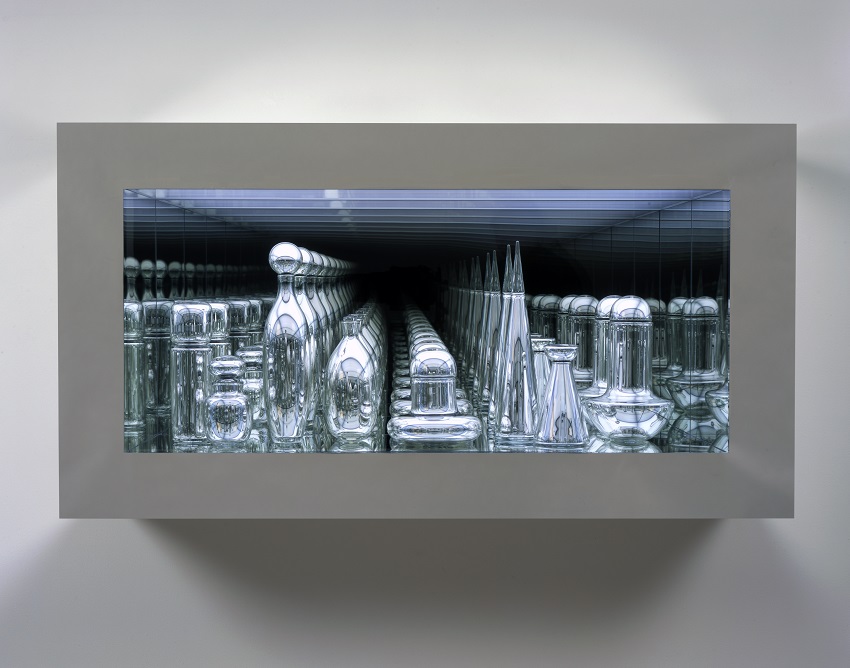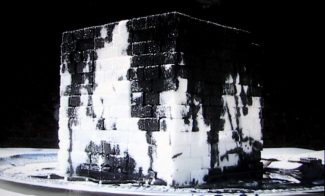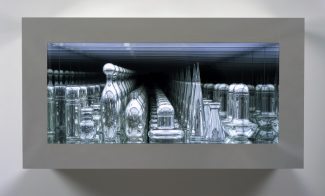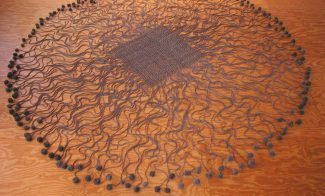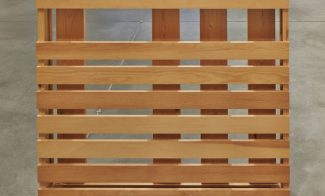Josiah McElheny’s installations of handmade glass objects in precisely designed vitrines, pedestals, or wall units with explanatory texts, documentation, or titles entice us to reflect on the origins of this traditional craft, the history of aesthetics it embodies, and the ideologies these aesthetics project. The product of an ancient technology that defies scientific classification as liquid or solid, glass is an amorphous medium ideally suited to McElheny’s presentation of classic stylistic forms as suspensions of unsettled ideals. Through them, seemingly absolute notions such as perfection, infinity, self-reflection, and utopia are recast as malleable artifacts subject to the forces of history and culture, the advances of art and science, and the contemporary context of their display.
In Czech Modernism Mirrored and Reflected Infinitely, a line of eight polished decanters is viewed through a sheet of one-way glass that reflects the enfilade in what appears to be endless recession into a horizon-less darkness beyond the limits of our vision. A close look at the surface of each object reveals its own reflection, which itself contains another, like a Russian nesting doll. This vacuum of containers-within-containers completely bereft of our own reflection is a vision of modernism devoid of the human element. The seamless landscape of shining forms entrances our senses but denies our presence, hinting at the dangers of infinite absolutes.
Striking for its craftsmanship and conceptual rigor, this perceptually stimulating piece provides a counterpoint to other sculptural works in the ICA/Boston’s permanent collection, such as Taylor Davis’s finely fabricated Untitled, 2001, and Mona Hatoum’s handworked Pom Pom City, 2002.
2006.4
